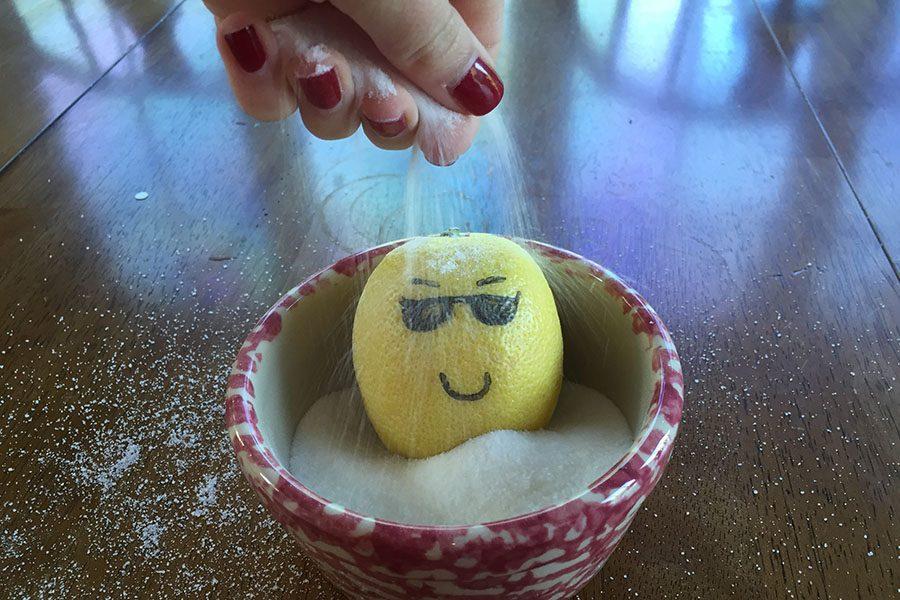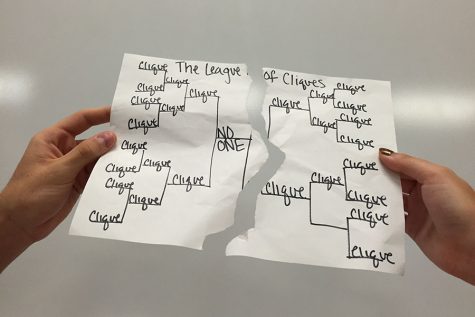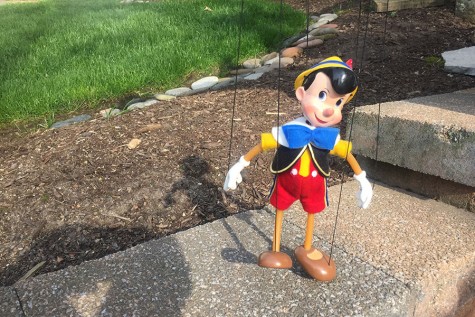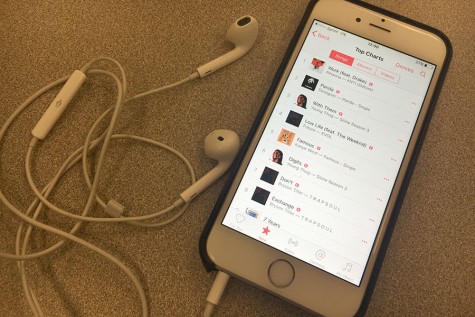Opinions: Rocca-ing the world: Learning to make lemonade
Dependence on another person never works. Once a partner violates trust, unless the layers are peeled back, sweetening that relationship again is unlikely.
Last week Beyonce released her new album “Lemonade,” and it got me thinking.
The whole album is one continuous video with speaking parts and heart-wrenching, artistic visuals of what it really feels like to be cheated on. The viewer is saturated with images like a room filled with water, and Beyonce drowning in it or Beyonce behind the wheel of a ginormous truck crushing other cars.
The songs go through 12 stages of dealing with infidelity: intuition, denial, anger, apathy, emptiness, loss, accountability, reformation, forgiveness, resurrection, hope and redemption.
The first time I watched the video and listened to the songs all the way through, I found myself in tears. I realized no one else had ever made an album solely about infidelity.
And I realized no one really talks about infidelity. It is an incredibly sour topic, but it is also an incredibly important topic.
And like lemonade, the sour lemons come before the sweet drink. I just think if people talk about it, people will be less likely to be ashamed to be victims of unfaithfulness or accept it.
Cheaters are everywhere, and statistically, the odds of being cheated on is about 25 percent… that’s one in four people.
Here in high school, I hear a lot about illusive love and people being cheated on, both girls and boys.
It breaks my heart.
I was cheated on. I discovered this violation after he told me the things I heard were rumours, after countless other lies were exposed and months after the incident actually happened.
I tried to stay calm and forgive the betrayal. I told absolutely no one because that just wasn’t the person I saw in him.
I stayed with him just as I see other people stay with their significant other who has cheated.
They say things to me like, “Well, it was only once and he told me everything, so I trust him/her. I think we’ll be fine.”
I said things like this, too. I tried to make the sour lemons into sweet lemonade.
So while it would be hypocritical to tell these people to simply dump a person because of infidelity, listening to Beyonce’s new album brought me so much insight.
I realized I was trying to pour sugar onto a whole lemon–peel and all.
Being cheated on is one of the most personal violations; it breaks an immense amount of trust, and it comes with a lot of decisions–not to mention the complete destruction of the victim’s confidence.
In a relationship, the cheater is also the first person the victim would turn to for comfort, for advice, for a sense of solace. The unconditional positive regard for the cheater is foundational to the relationship. The lies have already become the victim’s reality.
Eventually, the lies don’t add up.
When the lies are exposed, all the built-up trust makes denial inevitable.
I tried to pour more and more sugar into the extremely sour glass of lemonade. I thought: Maybe it would help if I was sweeter. Or if I could make him sweeter. But nothing could overpower the sour taste.
And as time went on and the reality sank in, the rest of the stages followed with a lot of anger and emptiness.
Little things, like being late or not returning a text, would get on my nerves, stemming from the built-up anger I never dealt with.
While his lemonade took all of the sweetness I had, I had no sugar left for myself and felt my own sour juice starting to make me cringe.
I remember feeling not only a loss of who I was dating but a loss of myself. I no longer felt like a fun, carefree person but a sour, nagging girlfriend.
I remember trying to change so that maybe I would be good enough, smart enough, pretty enough, just enough… until I had had enough.
Constantly telling myself to be better and do better only made me feel like I was less: less pretty, less smart, less of someone who mattered.
I started to ignore my own destruction trying to fix the person who had destroyed me.
While listening to “Lemonade,” Beyonce said something that changed me:
“You tried to change didn’t you? Closed your mouth more, tried to be softer, prettier less volatile, less awake. But even when sleeping, you could feel him travelling away from you in his dreams. So what did you want to do, love? Split his head open? You can’t make homes out of human beings. Someone should have already told you that, and if he wants to leave, then let him leave. You are terrifying and strange and beautiful, something not everyone knows how to love.”
Beautiful.
Finally, I realized that it was not that I wasn’t enough; it was that I was too much.
I realized that I could only make lemonade out of myself. I could not depend on another person for ingredients to my own self-acceptance and happiness.
Cheating has nothing to do with the victim and everything to do with the cheater.
Let’s face it, if Beyonce gets cheated on, anyone can be cheated on.
Unless the relationship goes through a long process of healing and probably therapy (like Jay-Z and Beyonce), cheating is followed by a lot of emotional abuse.
It is okay to cut that off.
It is okay to still care about the cheater.
But the emotional abuse is not okay. At all.
Cheating is a choice however hard it is to accept. It is selfish. It is immature. It is disrespectful.
Victims deserve partners who respect them just as much as the victims respected the cheaters.
We’re still in high school. I am still in high school.I still have a lot of time ahead of me to find that someone. And there are a lot of wonderful, sweet-types of lemonade in the world.
Dropping someone for a mistake does not mean I am a lesser person; it means I have enough respect for myself to walk away from something that emotionally reduces me.
It means I refuse to quit on myself.
It means I have learned to make my own lemonade.
Your donation will support the student journalists of Eureka High School - MO. Your contribution will allow us to purchase equipment and cover our annual website hosting costs.

This is Lauren's second year on staff. You can follow her on twitter @lroccaEHS_hub. Her hobbies include Golden Line. Outside of school she is involved...























